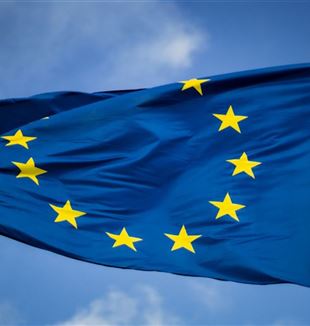
Europe: For peace, an ideal horizon
The European project, the test of conflict, democratic deficit, and technological progress. The Compagnia delle Opere's contribution in view of the European Elections.Lost Europe
The European Union is going through a difficult phase that began with the recent financial crises and that was then exacerbated by the pandemic and increasing global competition. The lack of equitable growth among member states undermines its authority, while ongoing conflicts threaten its stability. Questions about the role of the EU, its identity and major open issues (including energy transition and sustainability, birth rate, welfare and immigration, tax harmonization among member countries, foreign policy and defense, ethical issues and technology, the democratic deficit of institutions) touch the everyday life of the entire economic-social system, from businesses to individual citizens. But it would be abstract to address them without starting from the urgency that today most of all risks endangering the whole project.
The urgency of peace
The serious armed conflicts that have broken out on Europe's borders radically test the future of the European experiment. All efforts must be focused on the commitment to peace. It is useful to look back at the origins of the European Union. Unlike today, the economy, but the possibility of building a stable and lasting peace. Collaboration between the victorious and defeated countries of World War II was decisive in laying the foundations for a common future without conflict, and the economy proved to be the concrete means of achieving it. Unfortunately, what was supposed to be only a means has become the end.
Now, the outbreak of new wars and the arms race tragically puts before us the risk that we face: if war were to spread we would witness the definitive and unappealable failure of the Union project, attacking the future of the entire human family, as Pope Francis constantly repeats. Even to accept this hypothesis as possible or even probable contradicts the ideal foundation on which Europe was built.
A Europe of the peoples for a real democracy
To give a future of peace and solidarity to the peoples of Europe, the founding fathers started from the conception of the person as a "relationship." Over time it has been replaced by the more abstract notion of the "individual," atomized and fragmented, increasingly fearful and easy to manipulate. Leaving room for increasingly "intelligent" technological power or that of technocratic bodies replacing free democratic dynamics. We need to recover a conception of substantive democracy, resulting in the assumption of concrete responsibility for the common good. In this regard, the official motto of the Union, "United in Diversity" is significant, which refers to a Europe of the peoples capable of respecting and valuing the peculiarities of each member state. On the contrary, we are witnessing dangerous land invasions by European institutions that risk damaging the traditions, cultures and economies of each people. Pope Francis has spoken of "a Europe that fully values the different cultures that make it up, its enormous wealth of traditions, languages, identities, which are those of its people and their histories; and which at the same time is capable, with its institutions and its political and cultural initiatives, of ensuring that this very rich mosaic composes coherent figures” (2023).
The technological front
In an age that places its hope solely in progress, the few who control data and technology are able to shape the economy and finance and, consequently, governments and institutions. Technological development is crucial to Europe's future, and that is why we need to continue to follow the path outlined by the EU AI Act, a package of regulations that for the first time have attempted, in a systematic way, to rebalance a highly competitive but poorly regulated sector. There is also a need to invest in adequate professional training to enable companies to meet the enormous challenges of artificial intelligence and digital transformation.
Against this backdrop, it is crucial that the European elections on June 8-9, 2024, be supported by political proposals and candidates who first and foremost have at heart an ideal horizon aimed concretely at the common good of Europe, starting with an unrelenting commitment to peace among all peoples and to the dignity and freedom of every person.
Returning to the words Pope Francis, "The gradual and patient work of building a united Europe, first in specific areas, then in increasingly general ones: what did it have as its inspiration? What ideal, if not that of generating a space where one can live in freedom, justice and peace, respecting everyone in diversity? Today this project is put to the test in a globalized world, but it can be relaunched drawing from the original inspiration, which is more relevant and fruitful than ever, not only for Europe, but for the entire human family." (2023).